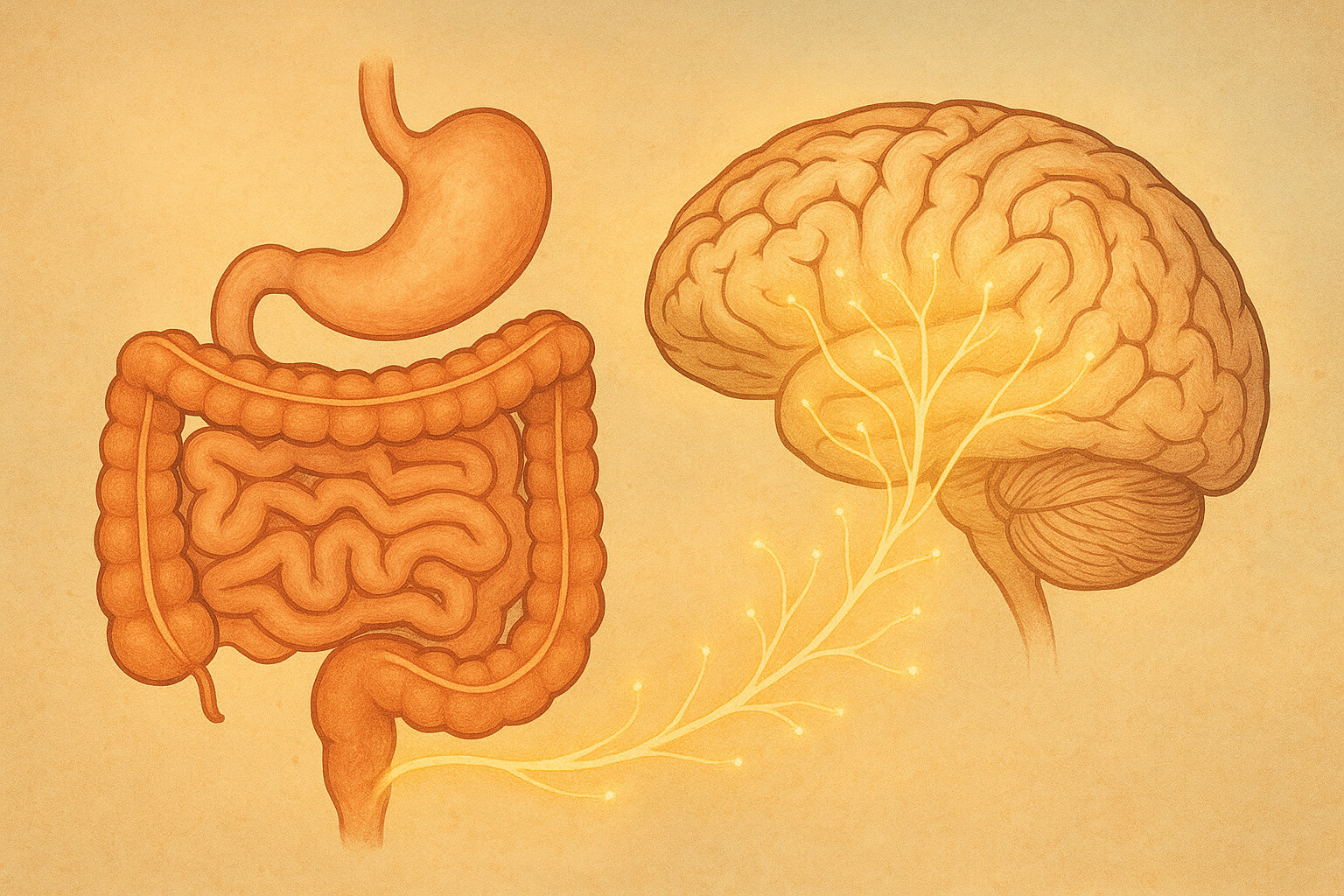August 25, 2025

The phrase “trust your gut” isn't just a cliché—it's a reflection of a profound biological truth. Modern neuroscience and gastroenterology have uncovered a powerful communication network between your digestive system and your brain, known as the gut-brain axis. This connection influences far more than digestion. It plays a critical role in your mood, memory, immune function, and even your ability to handle stress.
In essence, your gut is your second brain—and taking care of it is vital for total mind-body wellness.
The gut-brain axis is a complex, bidirectional communication system linking the central nervous system (your brain and spinal cord) with the enteric nervous system (the intrinsic nerve network of your gastrointestinal tract). These two systems constantly send signals back and forth using several pathways:
Notably, about 90% of serotonin, the neurotransmitter often linked with mood and happiness, is synthesized in the gut—not the brain. So when your gut is unbalanced, your brain may feel it as anxiety, brain fog, or mood swings.
Read more on this from Harvard Health and Johns Hopkins Medicine.
At the center of the gut-brain relationship is the gut microbiome—a diverse community of trillions of microorganisms (bacteria, fungi, viruses, and more) that reside primarily in your intestines. These microbes aren’t just passive passengers; they perform essential tasks, such as:
In a way, your microbiome acts like a mixing board in a recording studio, fine-tuning your physical and mental health. sample pack guide uses this same layered approach to describe how tiny pieces come together to form something powerful—just like your microbes do.
You have significant control over your gut-brain health through daily habits. Here’s how you can support the connection:
Tip: A Mediterranean-style diet is strongly associated with better gut and brain health.
Practical ways to manage stress:
Aim for:
Try:
Your body often gives signals when the gut-brain axis is out of sync. Watch for:
If these symptoms are chronic, consult a healthcare provider or a gastroenterologist. Functional medicine practitioners can also offer gut microbiome testing and holistic guidance.
Nurturing your gut is one of the most foundational investments you can make in your overall health. It’s not about quick fixes or supplements—it’s about sustainable, daily habits.
Just as a music producer builds harmony by balancing every layer of a track, you can create whole-body harmony by tuning your sleep, nutrition, stress, and movement to support your gut. With time, these choices shape not just your digestion but also your mental clarity, emotional stability, and resilience.
Your gut is talking—are you listening?
When you nourish your digestive system, you also feed your brain. The gut-brain axis shows us that we’re not just a body and a mind—we're a unified, responsive ecosystem.
Treat your gut with the care it deserves, and you may just find clearer thoughts, a brighter mood, and a stronger body waiting on the other side.
Stay up to date with the latest tips, expert insights, product reviews, and step-by-step guides to help you grow, create, and succeed—no matter your industry or passion.